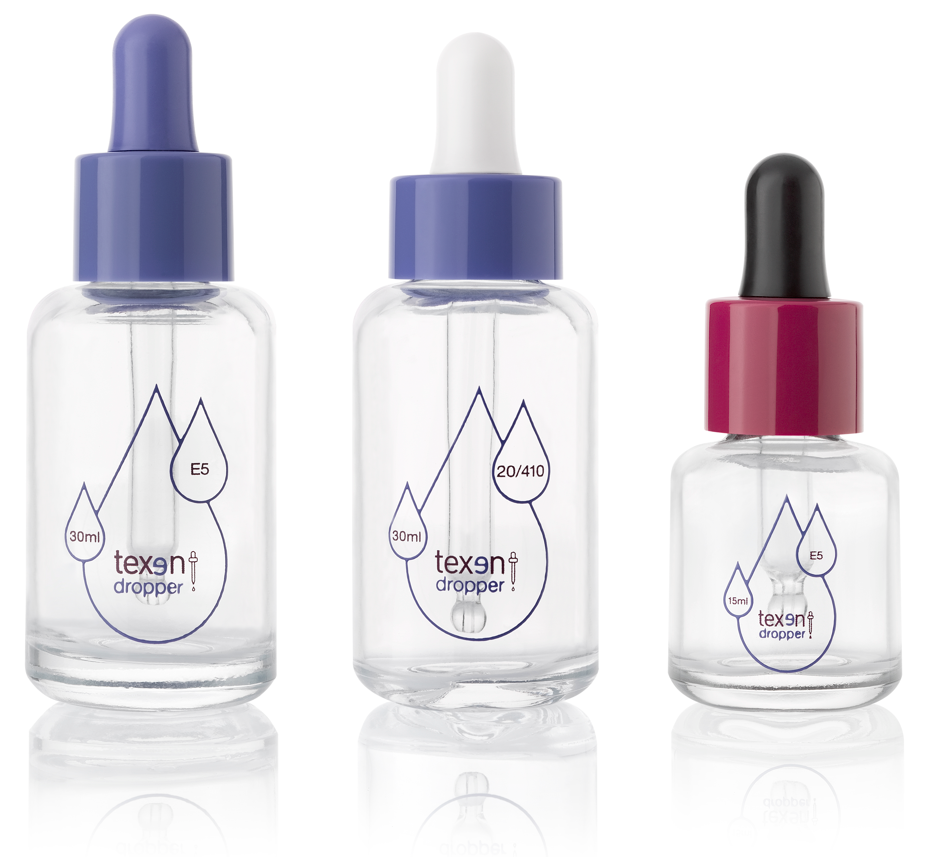Texen Group stakes its place on the dropper market with a ready-to-go collection.
Texen Group has developed its legitimacy on the dropper market thanks to its partnerships with brands on a multitude of skincare launches. Its new stock offer will benefit from this expertise along with flexible industrial capacity and a fully secured supply chain.
Historically associated with the pharmaceutical and dermo-cosmetics space, droppers have increasingly become relevant as the most suitable packaging solution for formulas highly concentrated in active ingredients like serums and precious oils. Texen Group has worked on a variety of such launches in recent years with major names in the beauty space.
Ready, steady, personalized…
Texen Group’s dropper offer includes a choice of colors and neck sizes in line with the market norms for screw closures. The parts offered can be customized to order (with metallization, color or specific surface treatments, for example).
This solution is backed by Texen Group’s expertise in bespoke dropper formats. In order to accompany brands, it responds to their needs for small or large production runs and guarantees short development times.
A fully secured supply chain
Texen Group has secured its supply chain to offer maximum flexibility and respond to brands’ expectations both in terms of the technicity of materials and production volumes.
Its SMART®* production lines are used today for major launches. The Group now has dedicated lines for droppers at its sites in Europe and the United States in order to be able to honor joint developments on both continents.
With this turnkey approach, Texen Group is responding to market needs while working towards innovations in dropper development and functionalities for the future.
*The SMART® (Speed, Modularity, Agility, Reliability by Texen) concept, developed by Texen, is the optimal solution for adapting to sustainability challenges with a flexible industrial model. The modularity of the SMART® automated assembly lines offers customer partners a sustainable compromise balancing competitivity, the optimization of industrial surfaces, limiting intermediary stock and reducing waste.
